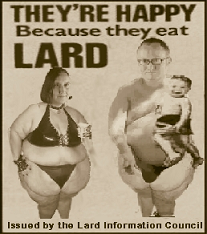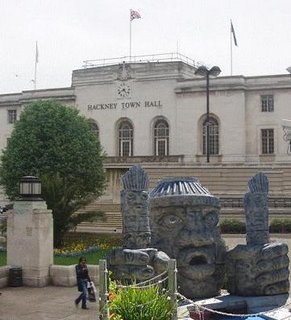New, exciting second edition. With material that changes as fast as LibDem policies.
| Eighteen months ago I published a post about 'Beating The Liberals', a four-page briefing paper that I wrote for my comrades back in 1998 drawing on the experiences of political campaigning in Lambeth. |
At the time I tried to blame poor old Dave Salisbury-Jones, veterinary surgeon and dutiful hubby of Natascha Engel MP, Labour Member for NE Derbyshire. He seemed such an easy target - very much like me, including a track record of failure in elections.
In the end I had to own up and admit that it was me who penned the key parts of the document, together with some of my many comrades from Lambeth. I still can't believe that people couldn't spot the obvious. Although the printers got most of the spelling mistakes out, you only have to look at the grammatical errors to see that I was behind the Briefing Paper.
Eventually everything went quiet and I was very relieved because there were some parts of the document that were raising eyebrows and making it look bad for me as a parliamentary candidate. | 
There's no limit to what these chaps can do, armed
with copies of "Voting On Europe", by Nick Clegg |
| Beating the Liberals
Defining the problem
Liberal Democrats have no significant natural supporters. They are simply hard working opportunists who succeed best against a moribund opposition. In many cases they win simply because their opposition is weak, disorganised or lazy. But in some Labour heartlands they are on the rampage because they tap in to, and express, the severe dissatisfaction of residents with the local council. In these circumstances no matter how hard you work they can overrun even the strongest Labour wards. This is because in addition to mobilising the volatile independent voters they attract huge swathes of traditional Labour supporters. The most vehement critics of poor Labour councils are the traditional Labour supporters who have most personal contact with the council (unemployed, DE, black, tenants).
On the council
The first priority is to steal their thunder. Take the burning issues that led to the success of the Liberal Democrats and make them your own. By offering real solutions to the issues they raise you can take away the reasons people have for voting for them. You can make the choice not who is in favour of X but who has the better plan, policy or record on X.
- If residents say 'the council tax is too high', go for 'no tax increase' or tax cuts
- If they say 'the repairs system is bad' get a 10 point plan to sort it out
- If council services are poor get them tested in competition with the private sector
- If the council is mired in fraud scandals come down as hard as nails
- Take on the issues residents value like crime
- If council tax and rent arrears are high or non-payment 'the norm' call in the bailiffs
- Put yourself back on the map by getting a realistic position on the issues. Clear, popular policies are the foundations of a strong new identity.
- Don't rely on opposing the Liberal Democrats and their ideas, get solutions to the problems they raise. The voters have spoken now its time to address their needs.
- Take away the reason for the Liberal Democrats to exist and leave them as merely opponents of Labour. It's a Labour borough and if you leave them as just your opponents the residents will come back.
- Identify the key symbols of change and make them your own ie. what would signify that you have become the party residents are looking for (tax cutting, zero tolerance, tough on crime are good examples).
- Let the issue become not whether you should do it but how it is to be done and who can be trusted to do it.
Working with the Liberals
Call for a pact around your new agenda; then slam them for opposing it. The Liberal Democrats will never do a deal with Labour so you can offer them one in complete safety. Likewise the Tories will seldom do a deal in public with their traditional enemies but they will be as keen as you to stop the Liberal Democrat surge particularly if you are straight in your dealings with them.
The important thing is to get yourself an agenda for change and take it through the council dealing with whoever it takes to get your requirements established. If you can develop a reputation for loudly supporting the change then it matters less if you have to support a Liberal motion to get the changes through. Trumpet initiatives before, during and after committees in the press and through advocacy leaflets delivered to those it affects.
'If you can't beat them: join them. And then beat them'.
- They said no to lower taxes
- They said no to a revamp of street cleaning
- They said they wanted to change Hackney but when given the chance they refused. They preferred business as usual.
Use the other opposition groups. They tend to hate the Liberal Democrats as much as you do and with their support you can win in the council chamber and the press. Frame resolutions with their needs in mind. Do deals with them and build their confidence in working with you 'off the record'.
The press
Only losing is more painful than being constantly vilified in the press. But often it is easier to accept defeat than get back in the ring and turn the press round. They key to effective press work is to treat each journalist as an individual and give them what they want: good stories, exclusives, nice pictures, inside information, the unvarnished facts, heroes and villains.
- Don't use mass distributions of press releases. Tailor each story to the journalists themselves.
- Keep a grip on who talks to the press but make sure the press think that you are heavily into open government. 'We wouldn't dream of managing the news'. Get a 'gatekeeper' who can manage your press enquiries.
- Use every story including all the negative stuff to get out your message. That way you always go forward. But don't bore them to death. The journalists and your critics may have an agenda but the punters want solutions to their problems. They don't care where they get it from and so long as you stick to what your residents want to hear it does not matter what the commentary is.
- Establish a regular haunt where you always meet up 'informally' before council meetings and 'set the press agenda' before decisions are made. Take journalists out for lunch and listen to them talk about themselves.
- Learn what they want and establish a close 'gossiping relationship' with the key journalists to feed and collect information.
- Learn to like them no matter how hard it may be and in helping them do their job well use them to get your message out.
- Understand where you are coming from and where you want the council to go and use that as a theme in your responses. Repeat the messages and themes to redefined your position. Don't get locked in to defending the crud.
- Use a 'backbencher' or 'loud mouthed staffer' to let them know 'what you really think'. 'Off the record' chats can be rather formal so break down the barriers. Use a wildcard, someone who is not important enough to quote, or someone who is too important for them to expose. All journalists need sources - give them one.
- When they are coming after you, use the gatekeeper to take off the heat and give yourself time to think. Then get back to them quickly. Channel their enquiries where you want them: The Leader is 'a very important person, always has lots of meetings, is often difficult to get hold of'. The gatekeeper is always accessible and friendly and can always get you the story or quote you want.
- Let the gatekeeper become their independent source of all knowledge and useful stories. At heart no journalist wants to work too hard if they can get their stories on a plate. And that's where the gatekeeper really comes in.
- Never lose your temper, never tell them off, and never break off engagement. Roll with the punches, take the shit and keep smiling.
The campaign
While hard work is important, getting your message across is essential. The electorate can be 'primed' by the repetition of simple themes. By concentrating your efforts on a simple message you can convince the electorate that you have the right answer to their problem. You can redefine what local politics is all about.
- Use generics not ward specific leaflets and establish a boroughwide newsletter like Lambeth Rose (it’s also cheaper for the job to do).
- Create a new identity for the group that people can like. Pick out key communicators (don't confuse with multiple messengers) and then do a makeover in your style of leaflets to reflect the 'new team'.
- Quite frankly, everyone knows Tony Blair and most people like him. You don't get a majority like we have in government and 85% approval ratings without being the best thing since sliced bread. Unfortunately electors are smart enough to distinguish the bits of the party they like from those they don't and his coat-tails are not strong enough to carry politicians who fail to deliver what they want. In Lambeth loyalty helped define the new identity and distinguish new Labour from the critics of the past. If you don't get back on the wavelength of local residents and into the mainstream of the party you will continue to be punished for it. Local factors where they exist will always dominate local elections.
- Pictures sell more powerfully than words so (unless you have a better-looking leader) use pictures of Tony Blair on everything. It defines who you are. Bring him into Hackney to sell your new self don't use him to sell the government.
- Present a programme that addresses the key concerns of residents. A simple, picture dominated manifesto. Simplify the message using lists and contrasts, 5 point plans, 3 key priorities, 10 point plans. Go for a 7-year old readership not the usual 12 and repeat the messages throughout the campaign.
- Dominate the estates. Use estate walkabouts to identify problems, write to the housing office and use direct mail to residents to tell them what you are doing. Raise your public profile there with MPs' visits and blitzes. Canvass there first and often. If you can get behind the door of tenants you can protect them from the influence of the opposition. But if they get there first you will have a much tougher job.
- Stick with the positive message about who you are now. Don't justify the past; move on to dominate the future. Give voters a change event, symbols and an explanation of why you have changed.
- Focus your fire only on the opposition you need to beat, don't spread it around. The problem is borough-wide and not just in those wards where the Liberal Democrats have already posed a threat. You need to kill it stone dead.
- The Liberal Democrats always have a fuzzy image so redefine them clearly in a negative light. Build a clear new identity for them too. Find three themes with which you can rubbish them eg. Absence, Broken promises, Cost and sleaze. Check their declaration of interests and their records. Find one flaw and smear them all - after all they put up with it and would do the same to you. Go negative until swamped by complaints. Then do it again.
- Use any by-elections to test your campaign, improve your organisation and perfect the message.
Useful source:
Stephen Ansolabehere and Shanto Iyengar, Going Negative, How political advertisements shrink and polarise the electorate, The Free Press (1995)
|











 I'm Luke Akehurst..... aka. "Luke The Nuke".
I'm Luke Akehurst..... aka. "Luke The Nuke".





4 comments:
I really hope the groveller have read that. I'm sure Russ Lawrence would love to know that he is there to be manipulated by the Labour party.
It's also a shame that you've left off the lovely reference at the bottom of one of the pages to a book on negative campaigning... so Akehurst it hurts.
Seeing as the whole story was in the Independent in 1998 and the document was posted that year on the Red Pepper website, I'm sure Russ read it then.
LLFL - thanks for that, I forgot the reference at the bottom. Corrected.
Spoofie - if he enjoyed it then, I'm sure he'll enjoy it again. Surely that's the point of a good read - you can enjoy it over and over again. I've even added a link to The Groveller just for you.
Good Job! :)
Post a Comment